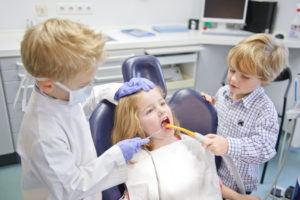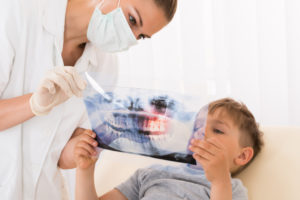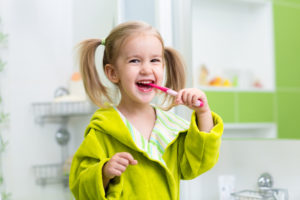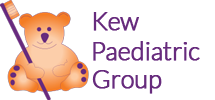How is a paedodontist different to a general dentist?
 Sometimes children find dental treatment to be a little overwhelming. Our expert paedodontists spend time with your child to ensure a positive dental experience in an enjoyable and caring environment. The paediatric dental team works with your child to build trust and rapport allowing them to feel at ease.
Sometimes children find dental treatment to be a little overwhelming. Our expert paedodontists spend time with your child to ensure a positive dental experience in an enjoyable and caring environment. The paediatric dental team works with your child to build trust and rapport allowing them to feel at ease.
Paedodontists provide dental care for children aging from birth to adolescents. They are specialists in their field having completed a minimum of 2 years accredited study in addition to a general dental qualification.
Whilst completing speciality training the paedodontist focuses on preventative and therapeutic oral health care for children, which includes the management of orofacial problems related to medical, behavioural, physical or developmental disabilities. Paediatric dentists are highly skilled in providing contemporary and comprehensive dental management for children in a range of settings including nitrous oxide sedation within the dental surgery and under general anaesthesia in a hospital environment.
Paediatric dental practices may differ from general practices in regards to their decor with paedodontists creating child-friendly environments to provide familiarity and to help children feel at ease. At Kew Paediatric Group the dental support team participate in ongoing training with the paedodontists and external training providers to ensure children receive optimum care delivered by knowledgeable and skilled professionals.
When should my child have their first dental x-ray?
 Dental x-rays (radiographs) are used by the paedodontist or oral health therapist for diagnostic purposes. They provide detailed information relating to cavities, the eruption of adult (permanent) teeth, dental anomalies and growth. Dental x-rays may be taken inside the mouth (intra-oral) or outside of the mouth (extra-oral).
Dental x-rays (radiographs) are used by the paedodontist or oral health therapist for diagnostic purposes. They provide detailed information relating to cavities, the eruption of adult (permanent) teeth, dental anomalies and growth. Dental x-rays may be taken inside the mouth (intra-oral) or outside of the mouth (extra-oral).
The need to take dental x-rays varies between children depending on their oral health and current dental problems. Children with good oral health may have their first intra-oral x-rays from four years of age when all the primary (baby) molars have erupted. This allows the clinician to ensure the teeth are healthy and allows them to begin management of any potential developmental issues. Children with good oral health generally have the x-rays taken every two years to monitor the health of the teeth and gums.
The x-rays taken inside the mouth allow the clinician to view the surfaces in-between the teeth, which cannot be seen when looking in the mouth. These areas, particularly the molars, can be prone to dental decay (caries) as food commonly becomes trapped here, later progressing to a cavity. If a cavity has developed intra-oral x-rays can assist the clinician in determining how deep the decay is and how much of the tooth is affected. This information is vital when determining the appropriate course of treatment. Intra-oral x-rays also allow the clinician to look closely at a particular tooth and its roots.
The panoramic x-ray taken outside the mouth is known as an OPG (orthopantomogram). The OPG allows the clinician to view the position and growth of the primary (baby) teeth and permanent (adult) teeth which are growing in the jaw. It also allows the clinician to view all of the surrounding structures. An OPG can be beneficial when determining the appropriate restorative dental treatment and also when a child may require orthodontic treatment.
Fee Information
 Payment in full is required on the day of service for any dental services provided at the practice. For your convenience Kew Paediatric Group has HICAPS and EFTPOS facilities available.
Payment in full is required on the day of service for any dental services provided at the practice. For your convenience Kew Paediatric Group has HICAPS and EFTPOS facilities available.
Accepted payment methods include:
- Visa & Master Card credit cards (issued within Australia)
- EFTPOS
Internationally issued credit cards are not accepted due to high merchant fees.
If you have private health insurance eligible rebates can be claimed at the conclusion of your child’s appointment. Please note, our reception team cannot advise of any anticipated rebate your child may be eligible for.
Medicare Child Dental Benefits Schedule (CDBS)
If your child is eligible for the Medicare Child Dental Benefits Schedule (CDBS) and you would like to use any existing benefits, please inform our reception team when making your child’s appointment. Please also have your child’s Medicare card readily available upon booking.
On arrival at your child’s appointment our reception team will advise you of your child’s CDBS balance and the associated cost of any services to be provided that day. You will be required to pay your account in full on the day of service and a receipt will be issued so you can make the CDBS claim through Medicare.
Please note that Medicare prohibits the use of both your private health insurance and CDBS benefits for the same item number.
Medicare also does not allow the use of CDBS benefits for dental services provided in the hospital setting.
Once your child’s account has been processed using either your private health insurance or CDBS benefits item numbers cannot be changed or existing statements altered.
